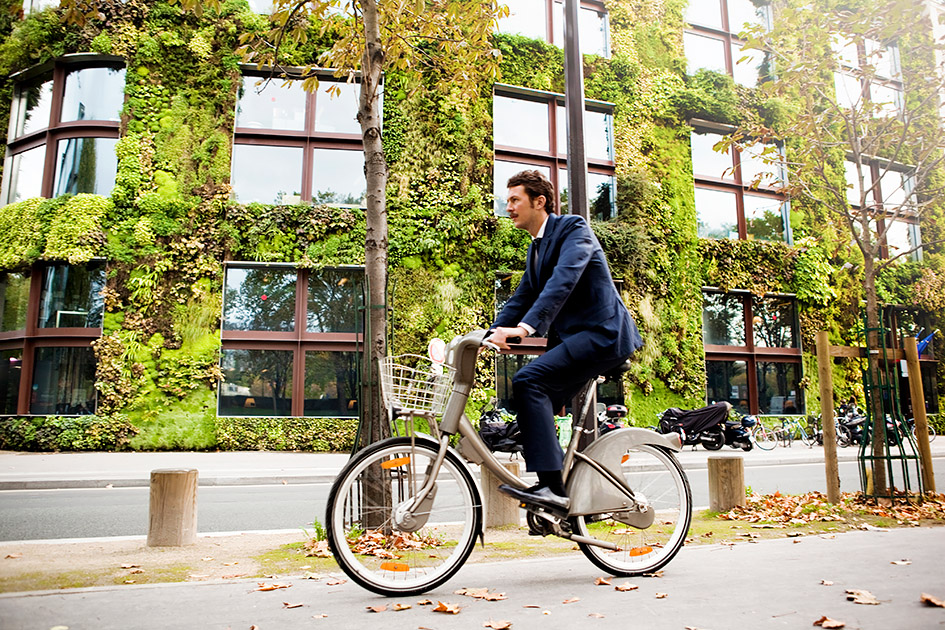Topics
CitiesinTransition
More than 70 per cent of global anthropogenic climate gases are emitted in cities. Sustainability challenges manifest themselves here with high intensity and diversity. But cities are also centres of change and starting points for technological and social innovations.
Long-lived infrastructures are concentrated in cities. They need to be redesigned if we are to achieve sustainable energy supplies and a resource-light society. The density of stakeholders in cities makes it possible to combine new technological solutions, lifestyles, and local identity with new business models. Since 2020, the COVID-19 pandemic has marked a turning point – politically, economically, socially, and individually. Therefore, the future of cities and their links to the surrounding areas must be reconceptualised. The greatest challenge and focus is on the sustainable, resilient city and its development.

Visionary Urban Transformation
Transition strategies for cities combine technological conversion scenarios with social and ecological visions for sustainable urban development. Cities become "real-world laboratories" for research by both examining and supporting sustainable development. Different strategies can be combined and studied in an integrated fashion: climate and resource protection, climate adaptation, the conversion of energy systems and transport infrastructures, and new models of production and consumption.
The Cities of Germany and the World
The geographic location of the Institute provides it with a rewarding research environment. Working closely with the city of Wuppertal and all its stakeholders has always been part of the Wuppertal Institute's research.
North Rhine-Westfalia and the towns and cities of the old industrial Ruhr area are facing the challenge of locally implementing the energy transition ("Energiewende") and contributing to regional and national climate commitments. At the same time, they are in the midst of a deep transformation; the economy, demography, and social makeup of the region are changing noticeably. Together with partners, the Wuppertal Institute is applying its integrative approach to these challenges.
Moreover, the Institute cooperates with cities and regions throughout Germany as well as international and interdisciplinary research networks taking a transdisciplinary approach. The integrative approach aims at a deeper understanding of the synergies and conflicting goals of ecological and social urban development, energy and resource aspects, and requirements for buildings, mobility, economy, and open space design.

Many cities have developed strategies for a green and socially acceptable future. Convening and linking up knowledge of stakeholders and science is key to making this transformation possible.
Topics
The research on changing cities and urbanity focuses on Wuppertal and the Ruhr area of Northrhine-Westphalia:
News
Here you can find up-to-date information on research findings and activities in the field of changing cities and urbanity.
News on the topic

Researching Real-World Labs and their Socio-Ecological Effects
GAIA special issue on real-world laboratory research published

Top 10 Publications of 2023
The ten best peer-reviewed publications of the Wuppertal Institute of the past year

Social-Ecological Cooperative Housing
E-Book on community-based, transformative building and living published in Open Access
Publi-cations
You find all scientific publications on our publication server:
Projects
Selected projects in the field of changing cities and urbanity. In the following you find selected sample projects. A complete list is available here.
